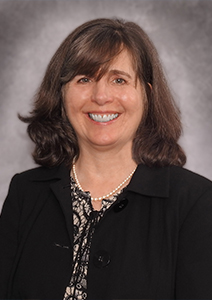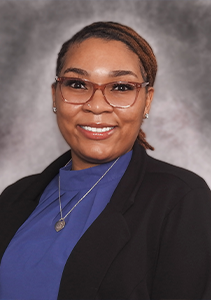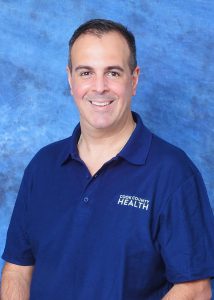The Division of Ophthalmology at the Cook County Health offers medical and surgical ophthalmic care to adults and children with diseases and injuries of the eye, orbit and eyelids.
Common diseases that affect the eye include diabetes, glaucoma and cataracts, but in addition, comprehensive care is offered to patients suffering from a broad spectrum of common and rare eye conditions ranging from eye disease due to premature birth to severe traumatic injury in adults.
Each year, the division treats 50,000 patients, performing over 2,300 major ocular surgeries, 10,000 intraocular injections and over 2,000 laser procedures. This is in addition to routine medical management of ophthalmic disease, as well as countless numbers of minor procedures. The Division of Ophthalmology is the busiest unit under the Department of Surgery.
Clinic services include fluorescein angiograms, visual field testing, ultrasound imaging, corneal hysteresis, ocular coherence tomography and nerve fiber layer analysis. The physicians utilize many methods of sophisticated care options, and many eye diseases can be treated with medical, surgical or laser procedures.
The Ophthalmology clinic, located in the Professional Building, is a comprehensively equipped facility with specialists available in seven subspecialties including: medical/surgical retina, oculoplastics, cornea, glaucoma, uveitis, pediatrics/strabismus and neuro-ophthalmology.
Minor surgery procedures can be performed within the clinic and the vast majority of major surgical procedures are performed on an outpatient basis using “same-day” surgery in the Hospital.
OPHTHALMOLOGY Faculty
Comprehensive:
Cornea:
Glaucoma:
Neuro-Ophthalmology:
Oculoplastics:
Pediatrics/Strabismus:
Retina:
-
Dr. Mohamed Adenwalla
-
Dr. Susan Anderson-Nelson
-
Dr. Quraish Ghadiali
-
Dr. Brian Larson
-
Dr. Camille Palma
-
Dr. Kevin Patel
-
Dr. Catherine Thomas
-
Dr. Jill Zaveri
Uveitis:
current residents
PGY-1:
-
James Garcia – Saint Louis University
-
Umangi Patel – University of Illinois at Rockford
-
Arshia Wadhwa – Saint Louis University
-
Anthony Wong – Rush Medical College
PGY-2:
-
Kristen Ashourian – Florida International University
-
Brett Breshears – Midwestern University – Chicago College of Osteopathic Medicine
-
Roya Garakani – Nova Southwestern University
-
Emmanuel Sarmiento – University of South Carolina
PGY-3:
-
Viviana Barquet – Universidad Central del Caribe
-
Dana Darwish – University of Illinois at Chicago
-
Kajal Sangal – Boston University
-
George Zhang – University of Vermont
PGY-4:
-
Dagmara Danek – Lake Erie College of Osteopathic Medicine
-
Mitchell Greenberg – Chicago Medical School
-
Alexander Robin – Rush Medical College
-
Lillian Tran – Texas Tech University
Former residents
2021
-
Melissa Ixcamey: Vitreoretinal Surgery Fellowship, Valley Retina Institute
-
Amar Mannina: Vitreoretinal Surgery Fellowship, University of Toronto
-
Hudson Stern: Vitreoretinal Surgery Fellowship, Cook County Health
-
Alex Yeung: Comprehensive Ophthalmology, Suburban Associates, IL
2020
-
Karl Becker: Uveitis/Medical Retina Fellowship, University of Illinois at Chicago
-
Nadia Bolton: Comprehensive Ophthalmologist, Tohono O’odham Nation Health Care and Sells Indian Hospital
-
Shweta Chaudhary: Comprehensive Ophthalmologist and Medical Student Coordinator, Cook County Health
-
Catherine Thomas: Medical Retina Fellowship, Northwestern University
2019
-
Kevin Ferenchak: Inherited Retinal Disease Fellowship at Massachusetts Eye and Ear Infirmary
-
Olga German: Medical Retina Fellowship, Northwestern University
-
Jordan Hill: Cornea Fellowship, Devers Eye Institute
-
Shyam Patel: Cornea Fellowship, Eye Consultants of Atlanta
Residency Program
The ophthalmology residency training program at Cook County Health is fully accredited by the Accreditation Council on Graduate Medical Education (ACGME), and approved by the American Board of Ophthalmology.
The goal of the residency is to develop skilled practicing comprehensive ophthalmologists and subspecialists by providing extensive clinical and surgical experience over a four-year period.
The program accepts four residents per year and participates in the central application service (CAS) of the San Francisco Matching Program. Admission is contingent upon the successful completion of an ACGME accredited or Canadian-approved internship.
All major subspecialties in ophthalmology are represented in the division with respect to clinical experience and faculty involvement. These include the following:
-
Cornea and External Disease
-
Glaucoma
-
Neuro-ophthalmology
-
Oculoplastics
-
Ophthalmic Pathology
-
Pediatric Ophthalmology
-
Retina/Vitreous
-
Uveitis
Rotations
PGY-1
The PGY-1 residency positions were integrated into the program July 2021 providing our residents with a comprehensive experience prior to beginning their formal ophthalmology training. The first year begins with a two-week orientation in which subspecialty attendings give introductory lectures and provide hands-on instruction in use of ophthalmic equipment and refraction. Rotations consist of two-, four- and six- week rotations in a variety of specialties, including internal medicine, plastics, dermatology and ophthalmology. During their ophthalmology rotation, residents will participate in general clinic, as well as train in ophthalmic imaging, testing and refraction.
PGY-2
During the second year, residents become integrated into Stroger Hospital Eye Clinic, as well as at our satellite clinic at Provident Hospital. At Provident Hospital, residents attend biweekly clinics for three months during the year where they experience their initial exposure into the operating room, as well as individualized attention with anterior segment and retina subspecialty attendings. Meanwhile at Stroger Hospital, there are three three-month rotations in general clinic where residents learn to assume increasing responsibility in managing patients. Residents also participate in oculoplastics rotations where residents serve as primary surgeons in minor procedures, as well as participate in oculoplastic clinical evaluations and a pediatrics rotation where residents have weekly first-hand experience in strabismus surgeries. First-year residents also perform anterior segment laser and retina laser procedures and intravitreal injections as proficiency allows.
PGY-3
The third-year resident schedule is divided into four blocks. During the three months of the consult rotation, the resident is responsible for treating both outpatient and inpatient consults. The consult resident also gains exposure to pediatric ophthalmology and retinopathy of prematurity screening during this rotation block. The retina rotation comprises a second block, where residents are exposed to extensive retinal pathology. This block provides residents with an opportunity to gain proficiency in intravitreal injections and retinal laser procedures. A third block consists of three months at the Blue Island Health Center Eye Clinic, which is staffed by Stroger Hospital Ophthalmology faculty. During this rotation, a second-year resident is introduced to major intraoperative procedures, including cataract surgery. The resident performs 20 to 30 cataract surgeries as the primary surgeon during the Blue Island rotation. A fourth block is spent as chief of the comprehensive Eye Clinic. There is one morning per week devoted to ophthalmic pathology under the guidance of our ocular pathologist, Dr. Bamba where residents gross in ophthalmic specimens and review previous slides at the microscope.
PGY-4
The major focus of the fourth-year resident is performing surgical procedures. More than 2,300 major operative eye cases are performed each year. The senior resident performs all surgical cases. All major surgery is supervised by attending physicians. Starting in 2017, a new rotation at Provident Hospital, another Cook County Health affiliate, has been established. Stroger Hospital Ophthalmology faculty also staff Provident Hospital. This rotation will allow for three days weekly in the operating room with further emphasis on expanding residents surgical skills. Senior residents are also responsible for aiding in patient care, and overseeing junior residents and medical student education in the general eye clinic. One senior resident is selected yearly to function as Chief Resident with administrative and educational responsibilities.
Education
Subspecialty attendings conduct teaching conferences daily in which material in the Ophthalmology Basic and Clinical Science Course (BCSC), published by the American Academy of Ophthalmology (AAO), is systematically covered.
The BCSC books are provided to each resident at the start of their first year. Monday mornings are devoted to Morning Report to review on-call issues and discuss cases. Every morning thereafter, lectures are held where attendings presents on high yield topics within their subspecialty. Grand Rounds are held each semester and formal Journal Club is held on a quarterly basis. Prior to the annual in-service examination (OKAPs) in March, a three-day comprehensive review of all BCSC topics is held at Stroger Hospital and is open to all Chicago-area residency programs at no cost.
In addition to the comprehensive in-house academic program, residents can participate in citywide combined educational programs. The first of these is the Chicago Curriculum in Ophthalmology (CCO), which is a lecture series with faculty from all six Chicago area residency programs participating. Lectures are held from September through April on Saturday mornings. Stroger Hospital Ophthalmology residents also attend the Chicago Ophthalmological Society (COS) monthly meetings free of charge. These meetings are held monthly on Monday evenings at the University of Chicago Gleacher Center from September through April. Nationally known speakers from all ophthalmic specialties are invited to give talks at this excellent forum.
All Cook County Health Ophthalmology residents have full privileges at the Stroger Hospital Tice Library and the Rush University’s Medical Library.
All residents are required to participate in at least one research project during their residency. The research project should lead to completion of a structured abstract for paper or poster presentation or a manuscript suitable for submission.
Facilities
The Eye Clinic is in the Cook County Health Professional Building and opened in October 2018.
The Eye Clinic has 18 modern, fully equipped eye exam rooms and a minor surgery operating room with a floor-model operating microscope and video display. Each exam room contains an Apple flat screen visual acuity monitor and Haag Streit slit lamps.
The clinic also includes a laser treatment room with a new Iridex Micropulse Argon Laser and a photography suite with a new Zeiss Fundus Camera. Retina imaging (OCT and FANG) is performed with a Heidelberg Spectral Domain OCT. Other equipment includes: two Iridex diode lasers, a Iridex MicroPulse diode laser, Nd: YAG laser, SLT laser, PDT laser, Keeler Cryomaster, ophthalmic ultrasound unit, two Humphrey automated visual field analyzers, a manual Goldman perimeter, Marco Corneal Topographer, Zeiss autorefractor, and a Lenstar 900 optical biometer. Two Reichert Ocular Response Analyzer’s are also available for corneal hysteresis.
The eye operating room in the hospital is equipped with a floor-model Zeiss Lumera 700 operating microscope with video output and digital video recording capabilities. The operating room is also equipped with all three major phacoemulsification machines including the Alcon Centurion, AMO Whitestar, and Bausch and Lomb Stellaris. Vitrectomies are performed with the Alcon Constellation System. In addition, there is a fully equipped wet lab facility with an operating microscope and a phacoemulsification machine.
Support Staff
A full-time ophthalmic photographer performs and processes all photography and fluorescein angiograms.
Two full-time ophthalmic technicians perform and assist in obtaining glaucoma-related testing such as visual fields and nerve fiber analysis. The Eye Clinic has a complement of seven full-time nurses or medical assistants who help to facilitate and assist residents in seeing patients including checking visual acuities.
Benefits
Cook County Health provides a comprehensive benefits package for housestaff physicians and their dependents.
The benefits include:
-
Blue Cross Blue Shield HMO or PPO health insurance, dental coverage, vision plan, disability, worker’s comp, life insurance, pension plan, and flexible spending accounts.
-
Salaries are very competitive compared to other area programs.
-
House staff physicians are entitled to the following paid leaves per academic year: 21 vacation days, 12 sick days, 12 holidays, 5 conference days, and 3 days bereavement.
-
House staff physicians are provided with a generous daily meal plan of $19 per day. Onsite parking is available for $70 per month.
-
An educational allowance of $1000 per year is available for reimbursement of expenses for conferences, seminars, review courses, purchasing of lenses or books.
-
Also, 20- and 90- diopter lenses are available as loaners.
Highlights
Meetings in Chicago
There are a large amounts of ophthalmology meetings in Chicago open to residents:
-
AAO Academy Meeting every other year
-
Chicago Ophthalmological Society meetings every quarter
-
Rabb Retina Study Group meetings every quarter
-
Illinois Association of Ophthalmology meeting every year
-
Northwestern Phaco Course
-
Loyola Cataract & Glaucoma Symposium
-
CCO Lecture Series: 2 hours of lecture every Saturday for all residents in the Chicago area
Daily Lectures
-
Mondays: Morning Report followed by a one-hour lecture on Neuro
-
Tuesdays: Lecture on Pediatrics, Retina, or Glaucoma
-
Wednesdays: Lecture on Glaucoma or Pathology
-
Thursdays: Lecture on Uveitis or Neuro-ophthalmology
-
Fridays: Lecture on Plastics, Retina, Cornea, or Pathology
Residency Training Sample Schedules
PGY-1
The first year is spent across several specialities for four-week intervals, including:
- Dermatology
- Emergency Medicine
- Endocrinology
- Internal Medicine
- Ophthalmology
- Plastic Surgery
- Rheumatology
- Trauma
PGY-2
In the second year, residents rotate their time for three-month intervals covering the General Eye Clinic at Stroger Hospital and at the Provident Hospital Eye Clinic, as well as Pediatrics and Plastic Surgery.
PGY-3
Year three is divided into four different blocks:
- Blue Island Health Center
- Clinic Chief
- Consults
- Retina
PGY-4, Major Surgery
Each resident alternates between Stroger Hospital (two days a week in the operating room) and Provident Hospital (two to three days a week in the OR) with non-OR days spent in Preoperative/Postoperative Clinic at Stroger Hospital. Surgical volumes are some of the highest in the country.
2021 Senior Resident Surgery Totals:
| Procedures | Minimum | Surgeon | Assistant | Total |
|---|---|---|---|---|
| Cataract | 86 | 349 | 46 | 395 |
| YAG laser capsulotomy surgery | 5 | 61 | 2 | 63 |
| Laser trabeculoplasty | 5 | 20 | 2 | 22 |
| Laser iridotomy | 4 | 34 | 4 | 38 |
| Panretinal laser photocoagulation | 10 | 362 | 11 | 373 |
| Keratoplasty | 5 | 3 | 9 | 12 |
| Pterygium/ conj/ corneal | 3 | 8 | 5 | 13 |
| Keratorefractive surgery | 6 | 3 | 7 | 10 |
| Strabismus | 10 | 16 | 7 | 23 |
| Glaucoma filter/shunt | 5 | 35 | 4 | 39 |
| Retinal Vitreous | 10 | 27 | 44 | 71 |
| Intravitreal Injection | 10 | 703 | 16 | 719 |
| Oculoplastic and orbit | 28 | 62 | 12 | 74 |
| Eyelid laceration | 3 | 13 | 1 | 14 |
| Chalazia excision | 3 | 4 | 1 | 5 |
| Ptosis/blepharoplasty | 3 | 7 | 1 | 8 |
| Globe Trauma | 4 | 9 | 3 | 12 |


